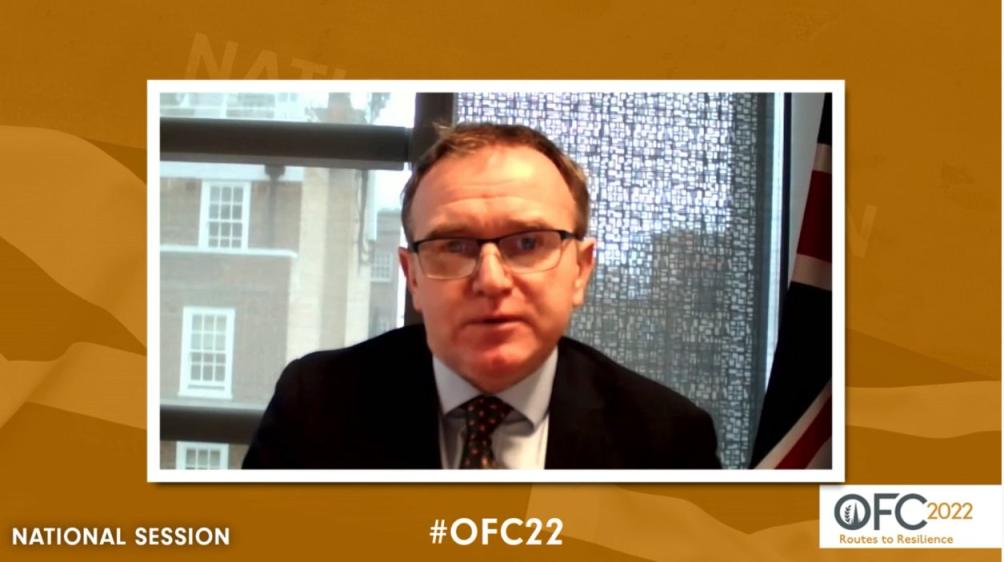A United Kingdom? Not when it comes to future agricultural policy
6th January 2022 by OFC Press Team

England, Northern Ireland and Wales share their agricultural policy visions
On the opening day of the Oxford Farming Conference, agricultural ministers from England, Northern Ireland and Wales shared their different visions for future agricultural policy and how new support payments can help achieve climate targets.
Secretary of State for Environment, Food and Rural Affairs, George Eustice, said that to meet climate ambitions change will be needed.
“Put simply, our vision is for a more sustainable agricultural industry where we produce a significant amount of our own food. Domestic food production is a critical part of our food security and that’s why we will be monitoring it every three years.
“Our policy will be putting in place powerful incentives to support sustainable farming. This includes sensitive hedgerow management allowing hedgerows to recover, recognising them as the single most important ecological building block in the farmed landscape, and good stewardship of soils with a focus soil health and biodiversity. But we must also note that there will be some land use change.”
The changes to land use includes targets of 10,000 hectares of new woodland creation per year and ambition to restore 300,000 hectares of habitats to their natural state.
Regarding the new Environmental Land Management Scheme, he also notes that payment rates need to incentivise farmers to participate.
“We now have legally binding targets for the environment, most notably a target to reverse the decline in nature by 2030. And we have a responsibility as a government to ensure that the payment rates we make are attractive enough to incentivise the uptake of our schemes on the scale needed to hit the targets we’ve set ourselves and to which we are legally bound to deliver.”
With 50% of farmers already in some sort of countryside stewardship, Mr Eustice announced that the Countryside Stewardship Scheme (CSS) payment rates will rise by up to 30%. In addition, any livestock farmer who is currently a claimant of BPS will be entitled to a funded visit from a vet once a year to put in place an animal health strategy.
Edwin Poots, Minister for Agriculture, Environment and Rural Affairs in Northern Ireland, said that their Future Agricultural Policy Proposals focused on farming with the environment.
“Enhancing our peatlands and hedgerows and enabling more tree planting are all key elements in how we want to address the issue around climate change. We also want to be smarter in how we farm. Instead of just being a producer or milk or meat, we need to look at that animal as a producer of renewable energy. The methane currently going into the environment needs to be captured and reused and we need to have more anaerobic digestion on our farms.”
Lesley Griffiths, Minister for Environment, Energy and Rural Affairs, outlined their plans for Welsh farmers to be leaders in sustainable food production.
“For us, we will create a new system of farm support so that we can really maximise the power of nature throughout farming. Our agricultural bill is key to meeting these ambitions.
“Welsh farmers can continue to produce high quality food, whilst maintaining those very high production standards, but what we’re proposing is to ask our farmers to go further and we will provide support – both financial and advisory - through the Sustainable Farming Scheme to target outcomes in relation to environmental issues. At the moment, farmers are not currently rewarded for clean air, clean water and flood mitigation, so that’s what we’ll be looking at as part of our sustainable farming scheme.”
Watch the full presentations, here
